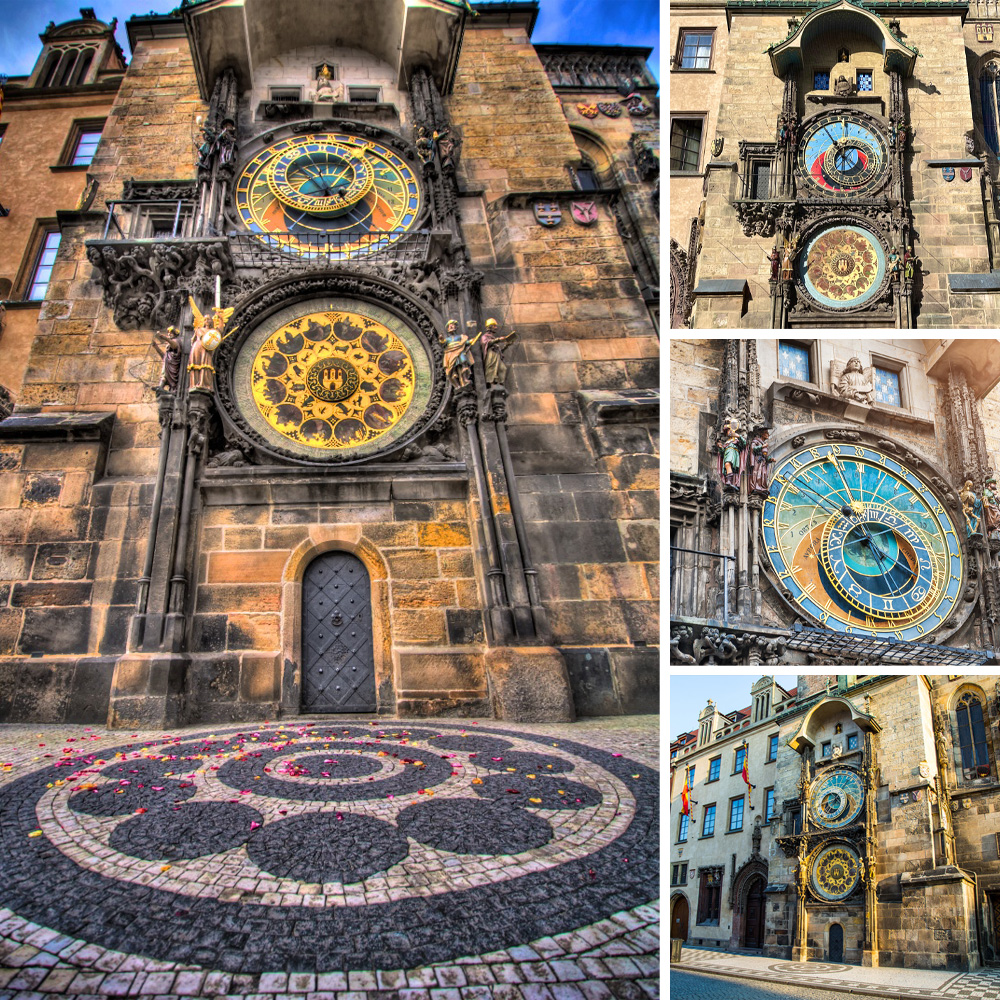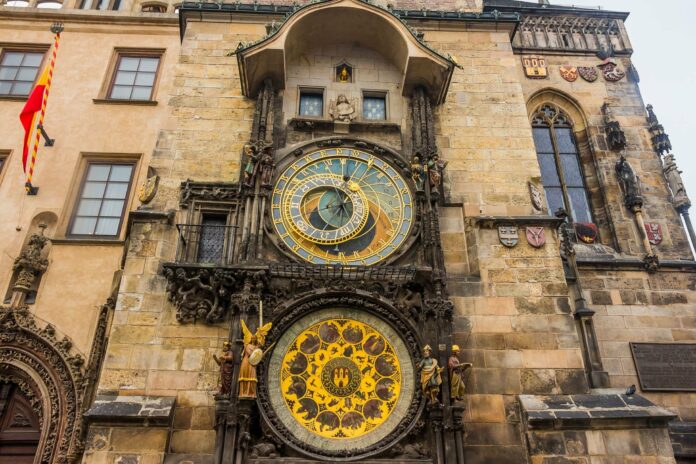Towering over the historic Old Town Square in Prague, the Astronomical Clock stands as one of the city’s most iconic and captivating landmarks. With a history spanning over 600 years, this medieval marvel continues to enchant visitors from around the world with its mesmerizing blend of engineering, astronomy, and artistic craftsmanship.
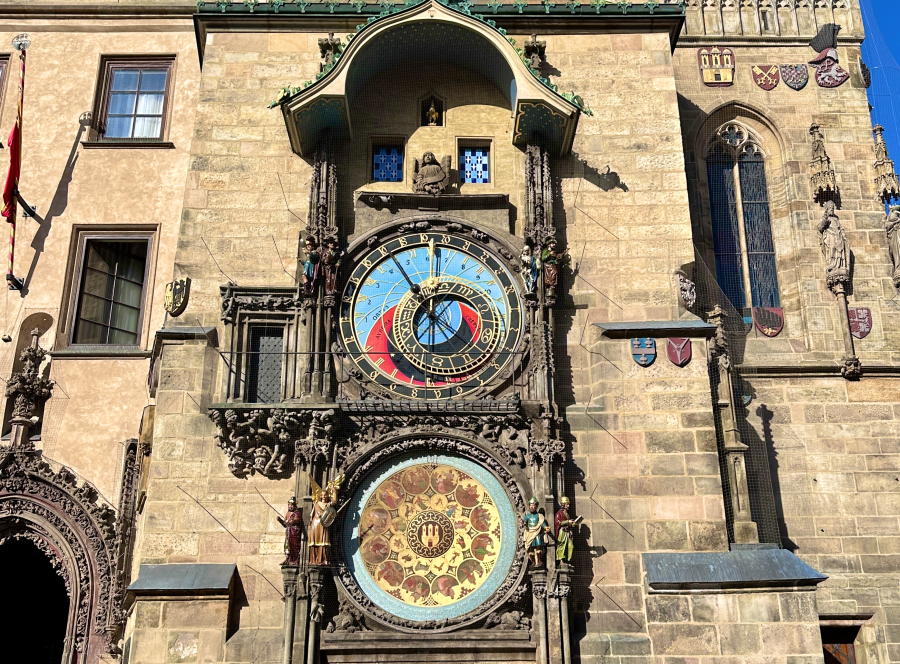
The clock’s origins can be traced back to the early 15th century, when it was first installed in 1410, making it the third-oldest astronomical clock still in operation today. Its design is a true testament to the ingenuity of medieval artisans, who managed to create a timepiece of unparalleled complexity and functionality.
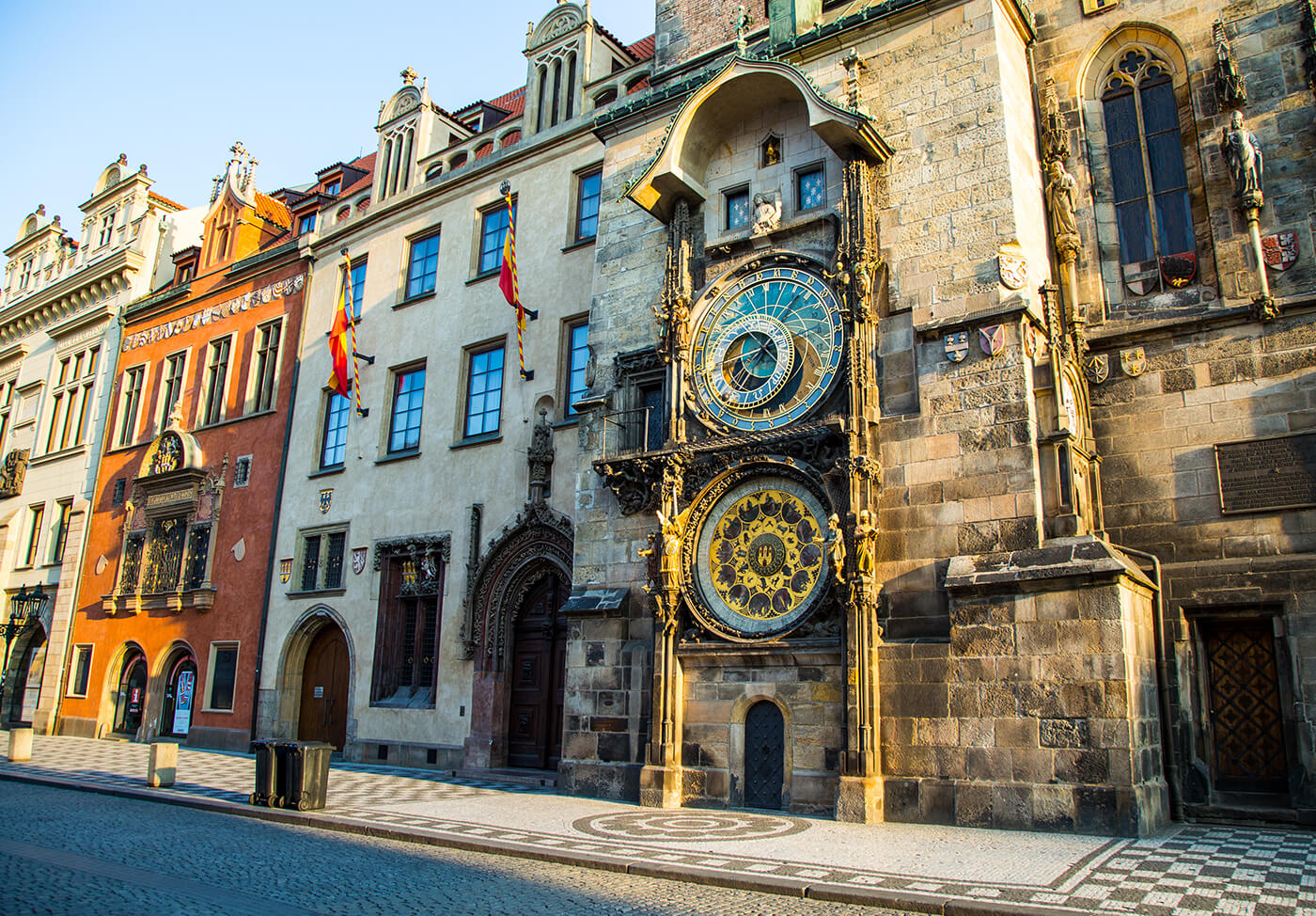
At the heart of the Astronomical Clock lies its impressive astronomical dial, which displays the positions of the sun, moon, and zodiac constellations. This intricate mechanism, akin to a mechanical astrolabe, not only tells the time but also provides a wealth of information about the celestial movements. The outermost ring features ancient Czech time indicators, while the inner rings depict the Earth at the center, surrounded by the zodiacal signs and various geographical markers.

But the clock’s true spectacle lies in its hourly performance, when the ornate figures in the upper part of the clock’s face come to life. As the clock strikes, the Twelve Apostles emerge from the two blue doors, accompanied by the movement of various other sculptures, including the personification of Death and the figure of Vanity. This captivating display has enthralled audiences for centuries, earning the Astronomical Clock a reputation as one of the most engaging timekeepers in the world.
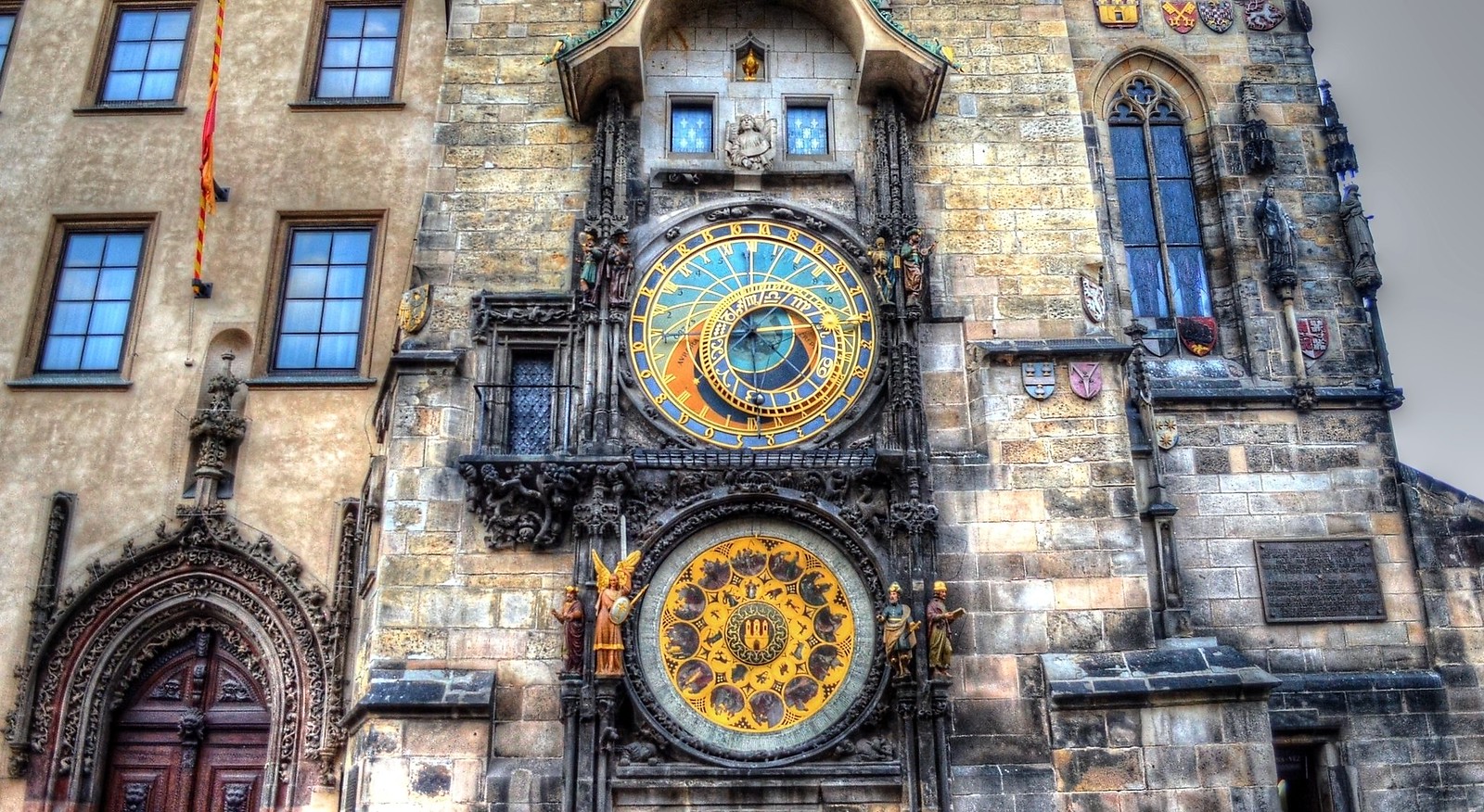
The clock’s rich history has been marked by both triumph and tragedy. In the late 17th century, the iconic wooden apostle statues were added, further enhancing the clock’s visual splendor. However, during the Second World War, the clock suffered significant damage, with several original sculptures destroyed by German forces. Nonetheless, the clock’s resilience has prevailed, with the damaged figures eventually replaced by skilled artisans.

Recent restoration efforts have uncovered even more fascinating secrets about the Astronomical Clock. In 2018, during routine maintenance, a hidden message was discovered inside one of the apostle statues, revealing the plans and complaints of a sculptor who had been commissioned to recreate some of the damaged sculptures. This discovery has only added to the clock’s enduring mystique, serving as a tangible link to its storied past.
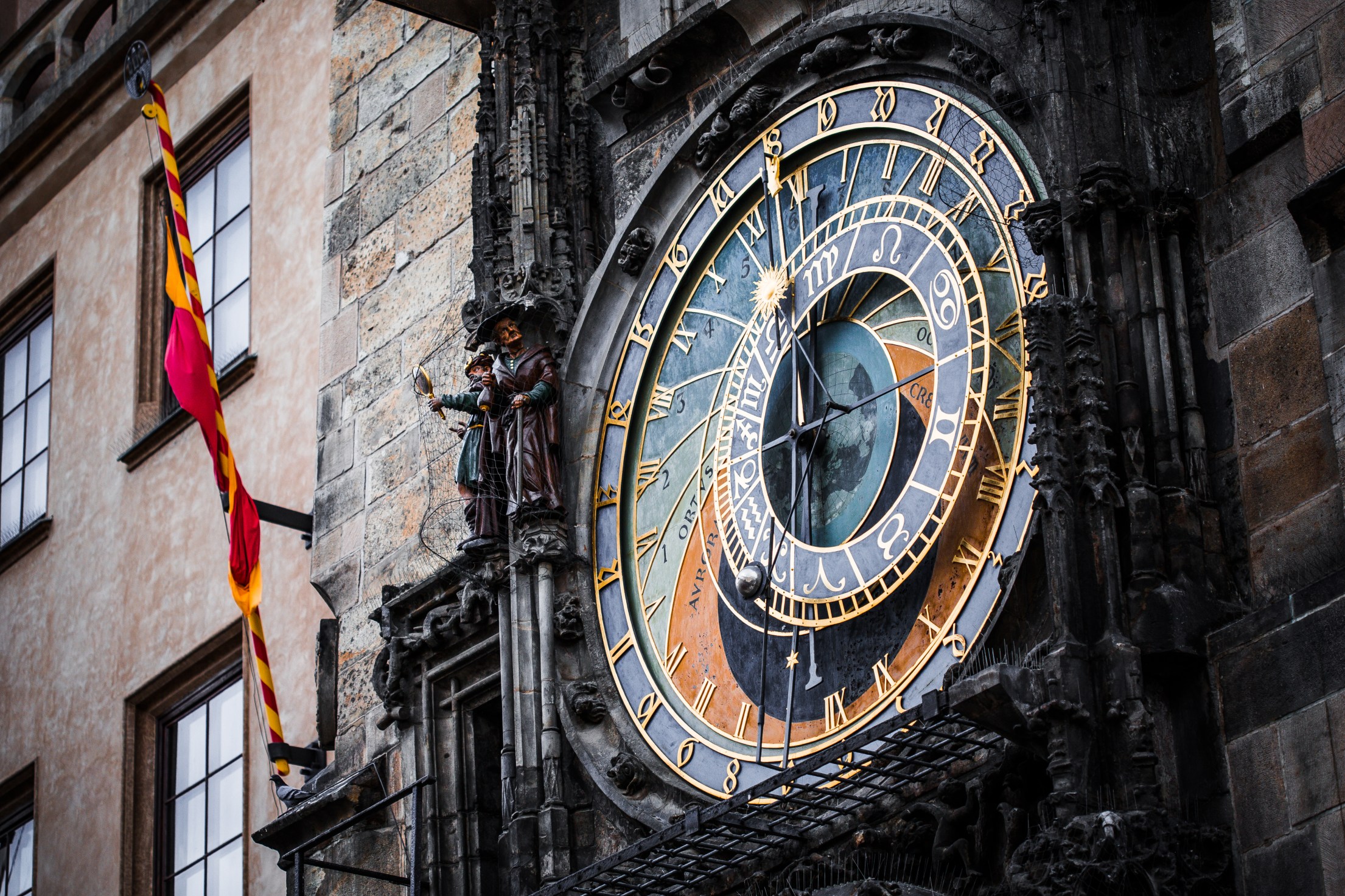
As Prague continues to captivate visitors with its enchanting old-world charm, the Astronomical Clock remains a centerpiece of this historic city, a testament to the enduring ingenuity and artistry of the human spirit. Whether marveling at its intricate mechanisms or witnessing the hourly performance, visitors to Prague are sure to be enchanted by the timeless treasure that is the Astronomical Clock.
